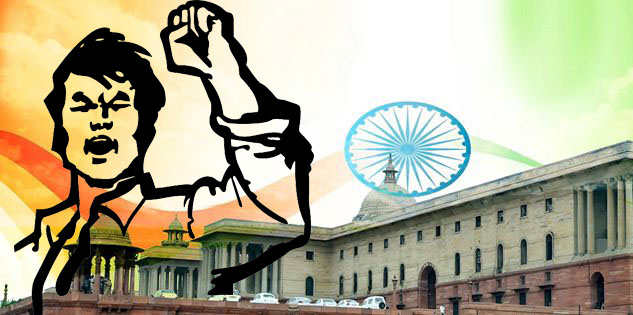At a time when competing –ism’s threaten to overwhelm the national discourse, it sometimes becomes important to sit back and take stock of the relationship between two that seem most to antagonise each other.
Patriotism is an emotional attachment to a nation that an individual recognizes as their homeland. This attachment, also known as national feeling or national pride, can be viewed in terms of different features relating to one’s own nation, including ethnic, cultural, political or historical aspects.
Secularism is the principle of the separation of government institutions and persons mandated to represent the state from religious institutions and religious dignitaries. One manifestation of secularism is asserting the right to be free from religious rule and teachings, or, in a state declared to be neutral on matters of belief, from the imposition by government of religion or religious practices upon its people.

A plain-English reading of the two concepts makes it clear that there should not be a conflict between the two. India is constituted as a secular republic, which implies that the existence of the very nation about which the people of India should be patriotic presumes a separation of state from religion.
In effect, we find that those who label themselves as ‘patriots’ tend to deride those who champion secularism as ‘anti-national’. The underlying sub-text to this is that the concept of ‘secularism’ has been mis-used to appease minority communities within India, and further to advance the agenda of specific political parties.
In a way, this reflects the misunderstanding of the concept of secularism. One of the first countries in the modern world to adopt a secular constitution, the United States of America, has enshrined the principle of separation of Church and State since its very inception in the late eighteenth century. The Founding Fathers of that country were far ahead of their times in insisting in having no state religion at a time when the rest of the world was caught in religious turmoil. Certainly, one cannot but praise the architects of India’s Constitution for ensuring a secular nature to that document, even if the word “secular” itself was added to the Preamble many years later. ‘Secularism’ simply requires that no government institution, or funds, shall be used for religious purposes, and no official religion shall be favoured by the State. There shall be no restriction on the practice of any religion within the country, and no citizen should be unable to practice his religion due to any intervention of the state.
If at all these fairly simple principles have been violated, it has been the fault of the human brings involved, and not the concept itself. In allowing clearly religious functions to pretend to be ‘cultural’, in using religious leaders (both from the majority as well as the minority community) for canvassing of votes during elections and basing entire electoral platforms on rectification of supposed wrongs suffered centuries ago, politicians – both those claiming exclusive use of the adjective ‘patriotic’ as well as of ‘secular’ have undermined their own causes.
For patriotism in the Indian context is meaningless without secularism, and secularism would not survive for long without a respect for the nation that fosters the very institutions that allow it to flourish. Long before the peninsula that hangs into the Arabian Sea off the southern part of Asia was a unified republic, it was a collection of states, occasionally organising into an Empire. This collection of motely small kingdoms included those who followed Vedic deities, pre-Vedic Goddesses, Abrahamic religions, and at times, rejected conventional religions practices altogether. The best rulers that this land we today call India has had, ran Kingdoms where competence and loyalty to the State mattered more than the religion a man practiced or the colour of his skin, and that was the belief on which the nation was founded.
In the final analysis, it is essential that vigorous defenders of both secularism and patriotism accept that a reckless propagation of either at the expense of the other is meaningless. Secularism is a integral component of the Indian nation, and without a patriotic commitment to the long-term viability of our democracy, secularism cannot survive.































